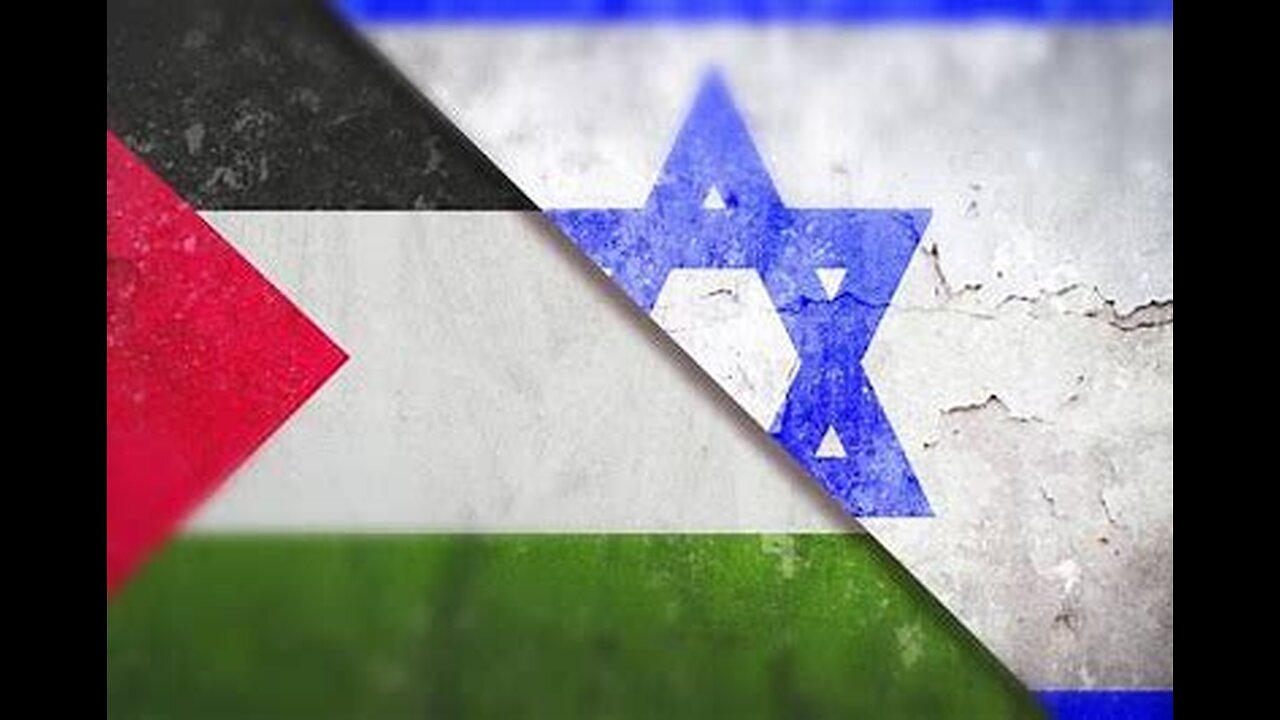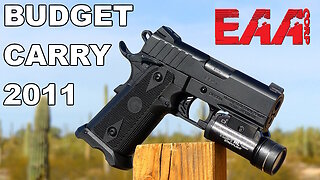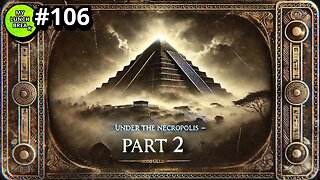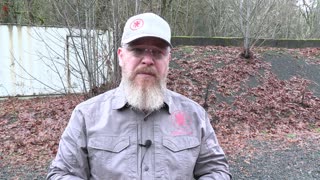Premium Only Content

Whose Land Is It? Palestine Or Israel? A 1982 Documentary
A Documentary On The The Israel Palestine Conflict From 1982. It was made by my film partner Amram Nowak. The documentary is extraordinary in part because of the unique stock footage he gathered to make the film, footage of Palestine and Israel taken by amateur filmmakers.
In 1982 the Israeli Palestinian conflict was marked by significant events many of which were extensions of earlier events and underlying issues. It was marked most prominently by the Lebanon War which had wide-reaching consequences for both Israelis and Palestinians. The events of this year further complicated the already intricate web of regional politics and conflicts.
The Lebanon War (also known as the First Lebanon War). Tensions between Israel and the Palestine Liberation Organization (PLO) had been escalating, particularly from southern Lebanon, where the PLO had established bases from which they launched attacks into Israel.
In June 1982, in response to an assassination attempt against Israel's ambassador to the UK (attributed to the PLO), Israel launched Operation Peace for Galilee. This was a full-scale invasion of Lebanon aimed at pushing PLO forces out of missile range of Israel's northern cities.
Israeli forces encircled West Beirut where the PLO leadership and its main forces were headquartered. After weeks of bombing and negotiations, an agreement was reached for the PLO to evacuate its fighters from Lebanon. The evacuation was overseen by a multinational force.
After the assassination of Bashir Gemayel, the newly elected Christian Maronite president of Lebanon and a key Israeli ally, Lebanese Christian Phalangist militia entered the Palestinian refugee camps of Sabra and Shatila in Beirut and killed a significant number of civilians. Israel's indirect role in allowing the Phalangists into the camps led to widespread condemnation and an investigation within Israel, which found that Ariel Sharon, then Israel's defense minister, bore "personal responsibility" for not anticipating the possibility of Phalangist violence. He was subsequently forced to resign his position, though he remained in the cabinet.
Israeli settlement activity in the occupied West Bank and Gaza Strip continued during this period, despite international condemnation. This settlement expansion contributed to heightened tensions between Israelis and Palestinians.
Beginnings of the Intifada. While the First Intifada (Palestinian uprising) against Israeli occupation began later in 1987, the seeds of resentment and discontent that would lead to this mass uprising were growing in the early 1980s.
The Israeli government of the time, led by Prime Minister Menachem Begin and his right-wing Likud party, held a hardline stance toward the Palestinians and had a vision of a "Greater Israel" that included continued control over the West Bank.
The PLO, under Yasser Arafat's leadership, was the predominant Palestinian political and militant entity. Despite being based out of Lebanon at the beginning of 1982, by the end of the year, after the evacuation from Beirut, the PLO's leadership had dispersed to various Arab countries, with a significant portion relocating to Tunisia.
The Role of Other Arab States: The Israeli-Palestinian conflict was not isolated from the broader Arab-Israeli conflict. Many Arab states, especially Syria and Jordan, had significant roles and interests in the Palestinian issue. Syria, in particular, had its own reasons for involvement in Lebanon and confrontation with Israel.
LBRY support: bbHFyeyzttuhtAyEMSzZzi64JNuPgmiE8b
😊like and subscribe please support by accessing the invitation link and also earn LBC Credits for yourself.
https://odysee.com/$/invite/@thisworldworks
-
 1:52:24
1:52:24
Squaring The Circle, A Randall Carlson Podcast
1 day ago#032 Flournoy Holmes' Artwork Helped Define The Southern Rock Phenomenon of The Early 1970's
24K3 -
 19:56
19:56
inspirePlay
1 day ago $0.34 earnedWalking with Lions & Facing Africa’s Wild Side | Safari Adventure with the Grid Championship Crew!
14.7K1 -
 10:50
10:50
RTT: Guns & Gear
1 day ago $1.05 earnedBudget Friendly Carry 2011: EAA Girsan Brat 2311
15.3K3 -
 3:49:06
3:49:06
Alex Zedra
17 hours agoLIVE! New Game | Nuclear Nightmare
106K14 -
 25:08
25:08
MYLUNCHBREAK CHANNEL PAGE
1 day agoUnder The Necropolis - Pt 2
288K80 -
 1:45:59
1:45:59
Spittin' Chiclets
1 day agoCanadian Chokejob - Game Notes Live From Chicago - 12.28.2024
265K32 -
 9:18
9:18
Space Ice
1 day agoThe Guyver - Alien Bug Suits, Exploding Dragons, & Mark Hamill - Weirdest Movie Ever
169K27 -
 9:31
9:31
Silver Dragons
1 day agoSilver Has Failed - Can it Set the Record Next Year? THIS BANK SAYS YES!
6.3K2 -
 7:08
7:08
GBGunsRumble
20 hours agoGBGuns Range Report 28DEC24
3.63K1 -
 1:19
1:19
LimitlessAmbition
7 hours ago $0.13 earnedHow the Discipline of Self-Respect Will Change Your Life Forever
2.69K